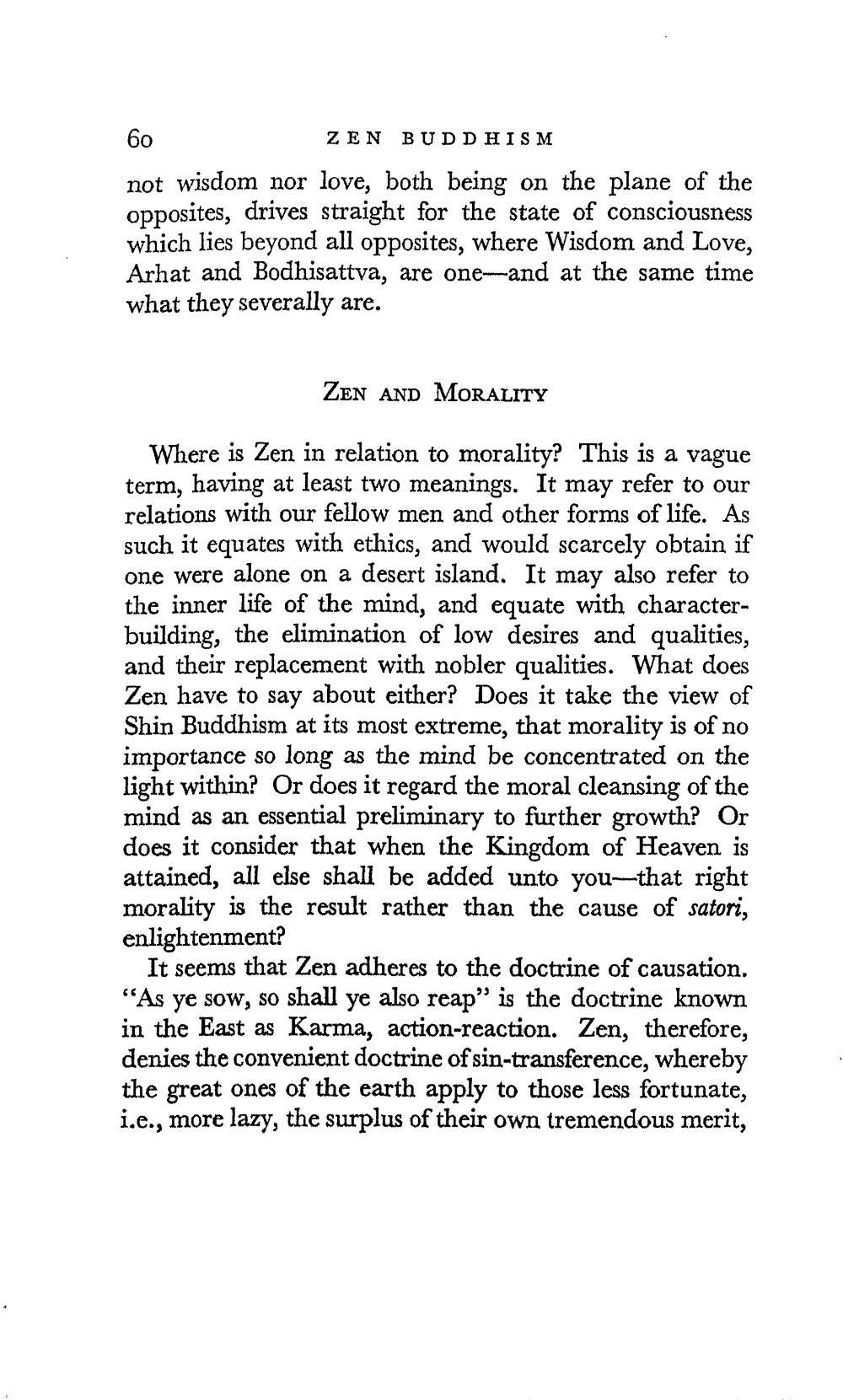________________
60
ZEN BUDDHISM not wisdom nor love, both being on the plane of the opposites, drives straight for the state of consciousness which lies beyond all opposites, where Wisdom and Love, Arhat and Bodhisattva, are one-and at the same time what they severally are.
ZEN AND MORALITY
Where is Zen in relation to morality? This is a vague term, having at least two meanings. It may refer to our relations with our fellow men and other forms of life. As such it equates with ethics, and would scarcely obtain if one were alone on a desert island. It may also refer to the inner life of the mind, and equate with characterbuilding, the elimination of low desires and qualities, and their replacement with nobler qualities. What does Zen have to say about either? Does it take the view of Shin Buddhism at its most extreme, that morality is of no importance so long as the mind be concentrated on the light within? Or does it regard the moral cleansing of the mind as an essential preliminary to further growth? Or does it consider that when the Kingdom of Heaven is attained, all else shall be added unto you—that right morality is the result rather than the cause of satori, enlightenment?
It seems that Zen adheres to the doctrine of causation. "As ye sow, so shall ye also reap" is the doctrine known in the East as Karma, action-reaction. Zen, therefore, denies the convenient doctrine of sin-transference, whereby the great ones of the earth apply to those less fortunate, i.e., more lazy, the surplus of their own tremendous merit,




